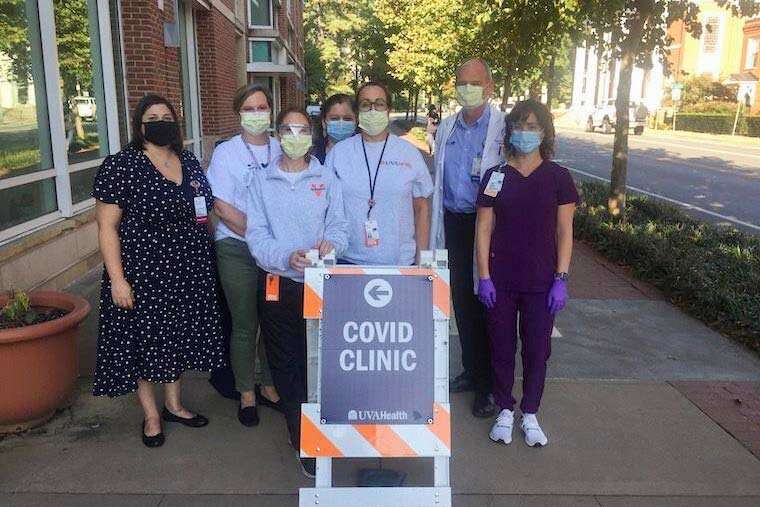
In what could be very good news for the immunocompromised, an antibody cocktail tested at the University of Virginia School of Medicine appears to offer long-lasting protection from COVID-19.
The cocktail, manufactured by Regeneron Pharmaceuticals, reduced the risk of COVID-19 infection by more than 80% for more than eight months, the company announced in a news release.
The 81.6% risk reduction seen in the second to eighth months after administration continues the robust, 81.4% risk reduction seen in the first month.
Dr. William A. Petri Jr. was one of the leaders of UVA’s testing of the antibody cocktail. He was pleasantly surprised by the durability of the protection reported by Regeneron. He said the drug could be of particular benefit for immunocompromised people who do not develop a strong response to vaccination.
“The significance of the finding is that the antibody cocktail can prevent COVID-19 in immunocompromised individuals whom we know sometimes fail to respond to the vaccine,” said Petri, an infectious disease expert.
Lasting COVID-19 Protection
Regeneron’s new analysis looked at the results from 1,683 people who were not infected with COVID-19 and did not have antibodies to the virus.
Among trial participants who received the cocktail, none was hospitalized for COVID-19 during the following eight months. Only seven were infected with SARS-CoV-2, compared with 38 who received a placebo. Thus, the antibody cocktail provided more than 80% protection for two to eight months.
The federal Food and Drug Administration first authorized Regeneron’s cocktail in November 2020 to treat patients with mild to moderate COVID-19. The federal regulators then expanded the authorization in July to allow its use as a preventative treatment in people exposed to COVID-19 and those at high risk of exposure, such as nursing home residents.
Regeneron’s antibody cocktail is not a vaccine and is not a replacement for a vaccine. However, it may greatly benefit people who do not develop a strong immune response to vaccination, such as patents receiving treatment for cancer and other people who are immunocompromised, said Petri, of UVA’s Division of Infectious Diseases and International Health.
For such patients, getting a periodic dose of the cocktail—annually, perhaps—could provide the immune protection that their own bodies can’t, Petri said. (More research will be needed to determine the best dosing interval.)
Source: Read Full Article